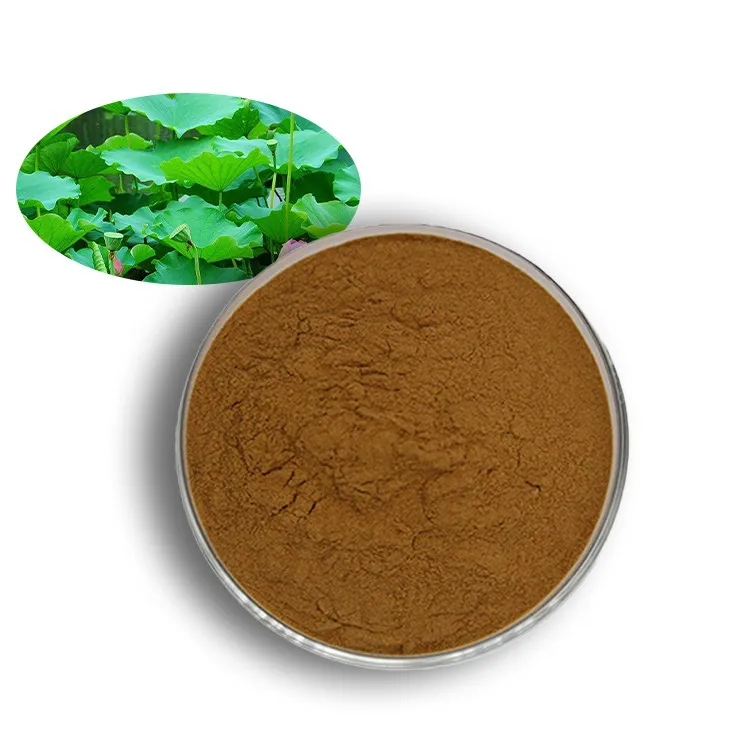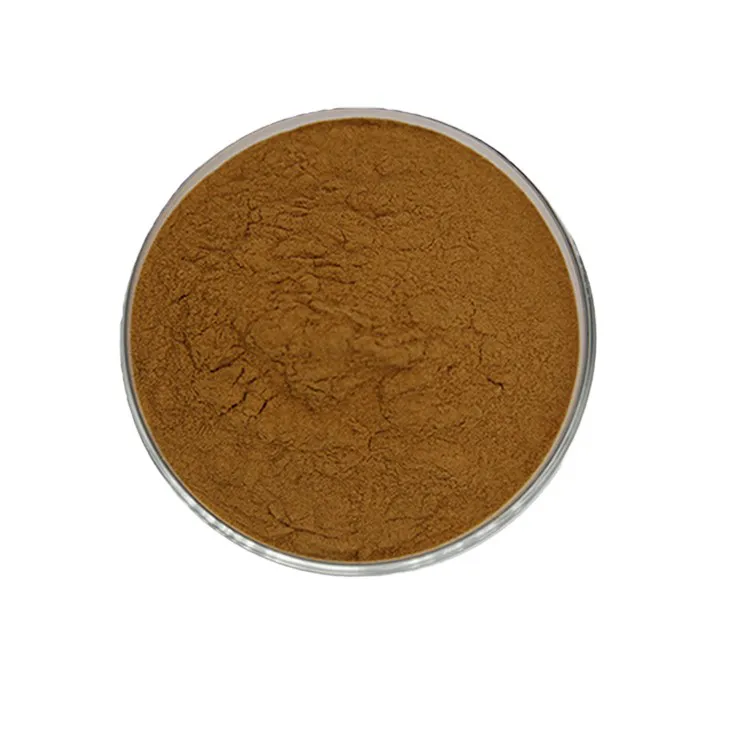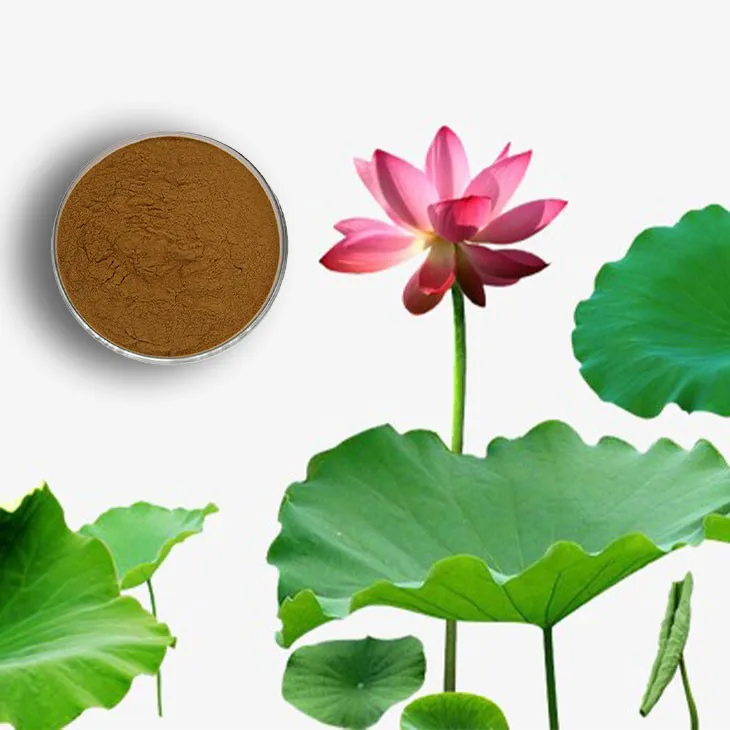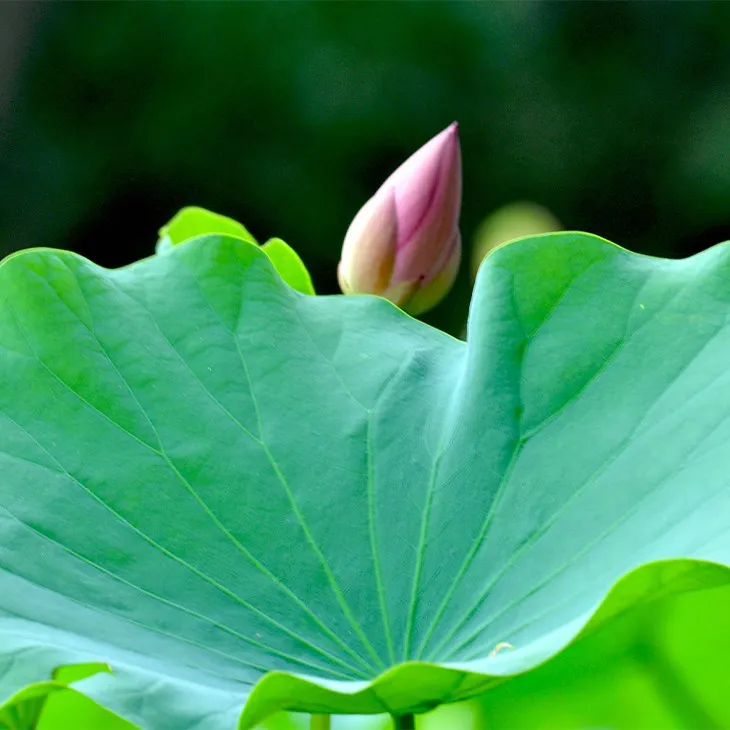- 0086-571-85302990
- sales@greenskybio.com
Lotus Leaf Extract: Benefits, Uses and How It Can Improve Your Home.
2024-11-14

1. Introduction
The lotus leaf, a symbol of purity and beauty in many cultures, has more to offer than just its aesthetic appeal. Lotus leaf extract is a natural wonder that has been gaining increasing attention in recent years. It is derived from the leaves of the lotus plant (Nelumbo nucifera), which is native to Asia but is now found in various parts of the world. This extract contains a rich blend of bioactive compounds that are responsible for its numerous beneficial properties.

2. Antioxidant Properties
One of the most significant benefits of Lotus leaf extract is its antioxidant properties. Antioxidants play a crucial role in protecting our cells from damage caused by free radicals. Free radicals are unstable molecules that are produced in our bodies as a result of normal metabolic processes, as well as from exposure to environmental factors such as pollution, radiation, and cigarette smoke.
The antioxidants in Lotus leaf extract, such as flavonoids and phenolic acids, help to neutralize these free radicals. By doing so, they can reduce the risk of chronic diseases such as cancer, heart disease, and neurodegenerative disorders. A study has shown that the flavonoids in lotus leaf extract have a high antioxidant capacity, which is comparable to that of well - known antioxidant-rich foods like blueberries and green tea.

3. Health Benefits
3.1. Weight Management
Lotus leaf extract has been associated with weight management. It contains certain compounds that may help to regulate lipid metabolism. In some traditional medicine practices, lotus leaf tea has been used to promote digestion and reduce body fat. Some research suggests that it may inhibit the absorption of dietary fat in the intestines, thereby reducing overall calorie intake. However, more scientific studies are needed to fully understand its mechanisms and effectiveness in weight loss.
3.2. Blood Sugar Regulation
Another potential health benefit of lotus leaf extract is its role in blood sugar regulation. Some studies have indicated that it may help to improve insulin sensitivity. Insulin is a hormone that is responsible for regulating blood sugar levels. By enhancing insulin sensitivity, lotus leaf extract may help to keep blood sugar levels within a normal range. This could be beneficial for individuals with diabetes or those at risk of developing diabetes.
3.3. Anti - inflammatory Effects
The anti - inflammatory effects of lotus leaf extract are also noteworthy. Chronic inflammation is associated with a wide range of diseases, including arthritis, cardiovascular disease, and inflammatory bowel disease. The bioactive compounds in lotus leaf extract, such as alkaloids and tannins, have been shown to possess anti - inflammatory properties. They can help to reduce inflammation in the body by suppressing the production of inflammatory cytokines.

4. Uses in Health Products
Lotus leaf extract is widely used in various health products. It can be found in dietary supplements, herbal teas, and functional foods.
- Dietary Supplements: Lotus leaf extract is often included in dietary supplements in the form of capsules or tablets. These supplements are marketed for their potential health benefits, such as antioxidant support, weight management, and blood sugar regulation. Consumers who are interested in natural alternatives for maintaining their health may choose these lotus leaf extract - based supplements.
- Herbal Teas: Lotus leaf tea has a long history of use in traditional medicine. It is made by steeping dried lotus leaves in hot water. The resulting tea has a mild, earthy flavor and is believed to have various health - promoting properties. Drinking lotus leaf tea regularly may be a simple and enjoyable way to incorporate the benefits of lotus leaf extract into one's daily routine.
- Functional Foods: Some food manufacturers are starting to add lotus leaf extract to their products to enhance their nutritional value. For example, it may be added to energy bars or smoothies to provide an extra boost of antioxidants and other beneficial compounds.

5. Lotus Leaf Extract in Home Cleaning
In addition to its uses in health products, lotus leaf extract can also be a great addition to your home cleaning routine. It offers a natural and eco - friendly alternative to many commercial cleaning products.
5.1. Natural Disinfectant
The antibacterial and antifungal properties of lotus leaf extract make it an effective natural disinfectant. It can be used to clean surfaces in the kitchen and bathroom, such as countertops, sinks, and toilets. To make a simple lotus leaf extract - based disinfectant, you can mix a small amount of the extract with water in a spray bottle and use it to wipe down surfaces. This can help to kill harmful bacteria and fungi, reducing the risk of infections and keeping your home clean and hygienic.
5.2. Air Freshener
Lotus leaf extract has a pleasant, natural scent that can be used to freshen the air in your home. You can make an air freshener by adding a few drops of lotus leaf extract to a diffuser or a spray bottle filled with water. This natural air freshener can replace chemical - laden commercial products, providing a fresh and clean smell without any harmful fumes.
5.3. Stain Remover
Surprisingly, lotus leaf extract can also be used as a stain remover. It has properties that can help to break down and remove certain types of stains, such as food stains or dirt stains. You can apply a small amount of the extract directly to the stained area and gently rub it with a cloth or sponge. For tougher stains, you may need to let the extract sit on the stain for a few minutes before wiping it away.
6. How to Incorporate Lotus Leaf Extract into Your Home
There are several ways to incorporate lotus leaf extract into your home for both health and cleaning benefits.
- Purchase Ready - made Products: You can find a variety of health products and home cleaning products that already contain lotus leaf extract in the market. Look for dietary supplements, herbal teas, natural disinfectants, and air fresheners with lotus leaf extract as one of the main ingredients.
- Make Your Own Products: If you prefer a more hands - on approach, you can make your own lotus leaf extract - based products at home. For example, you can make your own lotus leaf tea by drying fresh lotus leaves and steeping them in hot water. You can also make your own home cleaning products using lotus leaf extract, as described in the previous section.
- Use in Cooking: In some cultures, lotus leaves are used in cooking. You can explore the use of lotus leaf extract in cooking as well. For example, you can add a small amount of the extract to sauces, marinades, or dressings to add a unique flavor and potentially some health benefits.
7. Precautions and Considerations
While lotus leaf extract offers many potential benefits, it is important to take some precautions when using it.
- Allergic Reactions: Some individuals may be allergic to lotus leaf extract. Before using any products containing the extract, it is advisable to do a patch test on a small area of skin to check for any allergic reactions. If you experience any itching, redness, or swelling, discontinue use immediately.
- Interaction with Medications: If you are taking medications, especially those for diabetes, blood pressure, or heart disease, it is important to consult your doctor before using lotus leaf extract. There may be potential interactions between the extract and certain medications, which could affect their effectiveness or cause adverse effects.
- Quality and Purity: When purchasing lotus leaf extract - based products, make sure to choose products from reliable sources. Ensure that the products are of high quality and purity to get the maximum benefits and avoid any potential contaminants.
8. Conclusion
In conclusion, lotus leaf extract is truly a natural treasure with a wide range of benefits. Its antioxidant, health - promoting, and home - cleaning properties make it a versatile and valuable addition to our lives. Whether you are looking to improve your health, maintain a clean home, or both, lotus leaf extract offers a natural and effective solution. However, it is important to use it responsibly and be aware of the precautions and considerations associated with it. With further research and exploration, the potential of lotus leaf extract is likely to be even more fully realized in the future.
FAQ:
What are the main antioxidant components in lotus leaf extract?
Lotus leaf extract contains flavonoids and alkaloids which are mainly responsible for its antioxidant properties. Flavonoids like Quercetin and kaempferol can scavenge free radicals, and alkaloids such as nuciferine also contribute to the antioxidant activity.
How is lotus leaf extract used in health products?
It can be used in various forms in health products. For example, it can be made into dietary supplements in the form of capsules or tablets. It may also be added to functional beverages, where it provides antioxidant benefits and may potentially help with metabolism regulation.
Can lotus leaf extract really be used for home cleaning?
Yes, it can. Lotus leaf extract has certain antibacterial and antifungal properties. It can be used as an ingredient in natural home cleaning products. For instance, it can be added to a homemade all - purpose cleaner to help keep surfaces clean and free from some common microorganisms.
Are there any side effects of using lotus leaf extract?
When used in normal amounts in health products or cleaning products, lotus leaf extract is generally considered safe for most people. However, excessive consumption in the form of supplements may cause some digestive discomfort in some individuals. Also, some people may be allergic to it, so it's important to test a small amount first when using it in new ways.
How to store lotus leaf extract?
Lotus leaf extract should be stored in a cool, dry place, away from direct sunlight. If it is in a powder form, it should be kept in an airtight container to prevent moisture absorption. When it is in liquid form, proper sealing and refrigeration may be required depending on the product's specific instructions.
Related literature
- Antioxidant Activity of Lotus Leaf Extracts: A Review"
- "Lotus Leaf Extract in Health and Wellness Products"
- "The Application of Lotus Leaf Extract in Green Home Cleaning"
- ▶ Hesperidin
- ▶ Citrus Bioflavonoids
- ▶ Plant Extract
- ▶ lycopene
- ▶ Diosmin
- ▶ Grape seed extract
- ▶ Sea buckthorn Juice Powder
- ▶ Fruit Juice Powder
- ▶ Hops Extract
- ▶ Artichoke Extract
- ▶ Mushroom extract
- ▶ Astaxanthin
- ▶ Green Tea Extract
- ▶ Curcumin
- ▶ Horse Chestnut Extract
- ▶ Other Product
- ▶ Boswellia Serrata Extract
- ▶ Resveratrol
- ▶ Marigold Extract
- ▶ Grape Leaf Extract
- ▶ New Product
- ▶ Aminolevulinic acid
- ▶ Cranberry Extract
- ▶ Red Yeast Rice
- ▶ Red Wine Extract
-
Medicinal Marshmallow Extract
2024-11-14
-
Nettle Root Extract
2024-11-14
-
Hedyotis Diffusa Extract
2024-11-14
-
Shikonin
2024-11-14
-
Bamboo Leaf extract
2024-11-14
-
Eyebright Extract
2024-11-14
-
Carrageenan Extract Powder
2024-11-14
-
Acai Berry Extract
2024-11-14
-
Plantain extract
2024-11-14
-
Black Rice Extract
2024-11-14





















